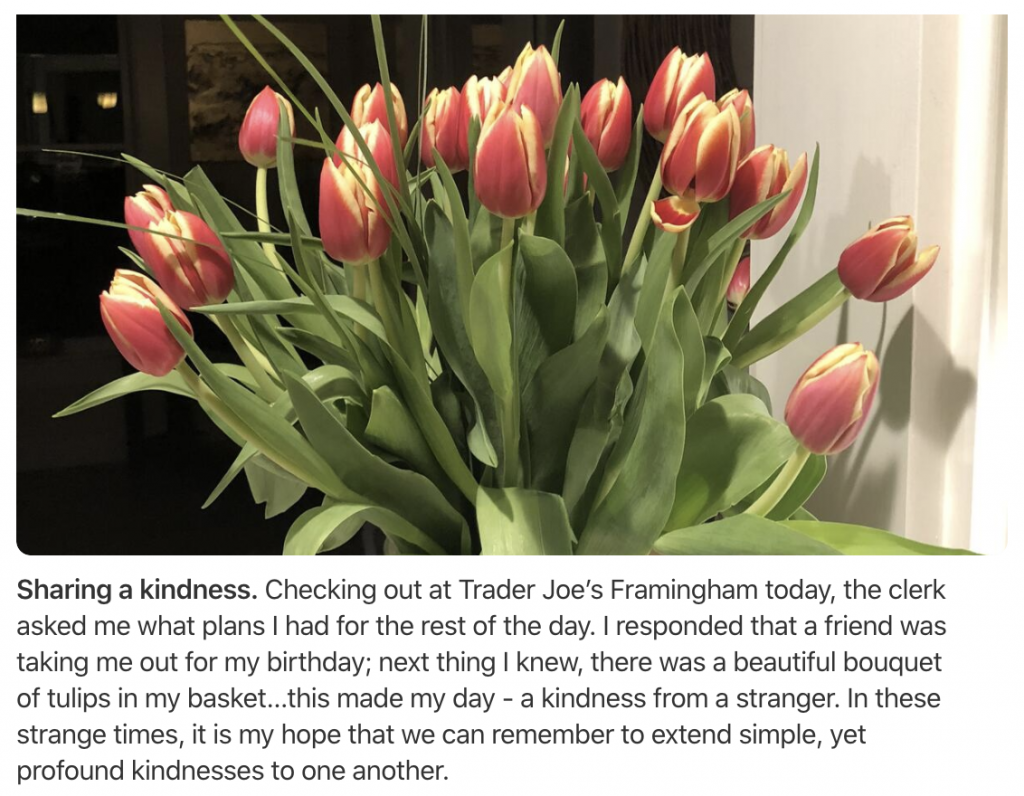The Critical Need for Empathy

We are in a chapter unlike any before. Now, more than ever, we have a critical need for empathy – as well as an obligation to demonstrate it. Not only are we in a social crisis – we are sick and tired of it. Socially distancing made us exhausted, emotional and LONELY – and now we are putting the masks back on.
Are We Becoming More Empathetic, or Less?
 We came together as a community at the start of COVID – backing each other, placing signs of support on our front lawns, sharing memes…. but could we also have been hiding behind screens? Add to that our inability to cue into non-verbal social exchanges – and now we are left confused and questioning our own intentions. Have we become so divided between those who believe and those who don’t that we now openly attack each other?
We came together as a community at the start of COVID – backing each other, placing signs of support on our front lawns, sharing memes…. but could we also have been hiding behind screens? Add to that our inability to cue into non-verbal social exchanges – and now we are left confused and questioning our own intentions. Have we become so divided between those who believe and those who don’t that we now openly attack each other?
What is Empathy?
What is empathy? Empathy is the ability to step into another person’s shoes in order to better understand their feelings and perspectives. Once we have surmised an understanding, we use this information to guide our actions and show compassion.
What Empathy Is Not
The ability to show empathy is a life skill – it can be strengthened at any stage of human development. From the child who quits bullying to the coworker who adequately expresses remorse at the death of another’s pet, empathy is about putting in the work to discover others’ ideas, opinions, tastes, etc. It is not to be confused with kindness or pity. Empathy is not stagnant; it requires effort and mindfulness.
How Does Empathy Come About?
New research indicates that we are homo empathicus, wired for empathy, social cooperation, and mutual aid; not only self-interested creatures as originally believed.
Environment, genetics, social and cultural factors influence our ability to feel empathy. Some folks, due to brain-based challenges, do not read social cues, facial expressions and emotions well. They may lack the perspective or the self-awareness to see how others interpret their actions and behaviors. Their intentions are good, but they do not understand how they come across.
Teaching Empathy
In order to foster empathy, the surrounding community and environment must support the desire to promote empathy and kindness. Yes, there are examples in concentration camps where individuals have learned on their own – in horrendous conditions – to show empathy, but unfortunately that is the outlier.
By far, most of us learn empathy by seeing another model it and reinforce it with actions and messages. But empathy doesn’t stop developing in childhood. We can nurture its growth throughout our lives.
How to Make Empathy Part of Our Daily Lives:
- A Stranger is Just a Friend You Haven’t Met Yet – Do you find others interesting – perhaps even more interesting than yourself? Empathetic people are curious about others, and reach out willingly to engage. Curiosity pushes us outside our comfort zones. If this is not a strong suit, see my post Encourage Social Skills Development.
- Spend a Day as Someone Else – When was the last time you connected with others outside your social circle? How can we gain an understanding of the people from different demographics if we don’t connect? Spend a day in a local town that offers ethnic foods. Take the train and hop off somewhere new. Ask a friend if you could join them at their synagogue or church.
- Share Emotional States – To be truly empathetic, we must allow ourselves to be vulnerable. Sharing your pain with another goes a long way toward being empathetic. When others are sharing, listen as intently as possible. Look for non-verbal cues too – designed to help you better relate. Keep asking yourself, “What do other people feel? What is my reaction to their behavior? What did their facial expressions tell me about their feelings?”
When circumstances jolt us from our routines, it is hard to reset. Business is not the same as usual. Now is the time to discover ourselves through self-reflection – and by becoming interested in the lives of others.
The ability to understand other’s emotions and respond with kindness is an essential life skill that must be practiced throughout our lives.
Deeper Dive:
Ask me
If you have a question you would like me to answer, please submit it using the form below.
[gravityform id=”1″ title=”true” description=”true”]


